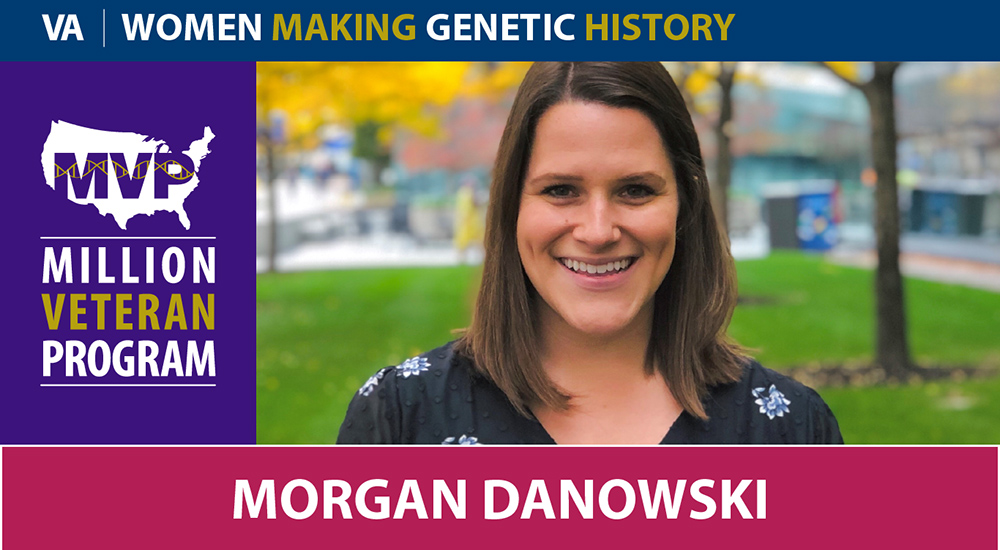One day in high school biology, Morgan Danowski’s teacher told the class about a profession she never heard of before.
Danowski always dreamed of going into medicine, perhaps following in her mother’s footsteps as a nurse. The calling felt natural, even hereditary.
But a career in genetic counseling – helping patients understand and process the meaning of their genetic test results – was entirely new for her. “I loved the idea of translating complex genetic information and giving patients tools to take charge of their health,” she said.
From that day on, her path was set.
Finding her home at VA
Danowski was a graduate student at Boston University, finishing her degree in genetic counseling, when she visited the VA Boston Healthcare System for the first time.
She watched as genetic counselors met with Veterans, sharing the difficult news that an illness like breast or prostate cancer did, in fact, run in their family.
Using statistics, diagrams and charts, genetic counselors explained how the Veteran’s genetic mutation might affect their health. They shared information on support groups and screenings to lower their risk. All the while, counselors listened with compassion as Veterans processed what this meant for themselves and potentially their children and grandchildren.
“I was struck most by how appreciative and grateful many of the patients were,” Danowski remembered.
Unlike other counseling sessions Danowski observed as a student, Veterans were overwhelmingly receptive to the knowledge shared with them. After all, they had come face-to-face with enemies in combat before.
All they needed were marching orders to take charge of their health. Genetic test results offered just the strategic blueprint they needed.
“After being with those Veterans, I knew this was the type of organization I hoped to be part of one day,” Danowski said.
VA’s Million Veteran Program
In 2019, Danowski graduated and joined Boston VA. There, she supports VA’s Million Veteran Program (MVP), now the world’s largest genomics research program.
The program takes DNA from participating Veterans and information on their health, lifestyle and military experiences and exposures to better understand disease in Veteran populations.
With over 830,000 Veterans enrolled, MVP is one way VA research informs tomorrow’s medicine and the specialized care Veterans deserve.
Sharing genetic results with Veterans in MVP
Most Veterans in MVP do not receive their own genetic results since the program was not set up this way. But MVP is exploring how to make this possible in the future and are piloting some strategies in a handful of studies.
Danowski is the genetics counselor on one of those studies, which contacts a small number of Veterans in MVP if they appear to have a genetic variant related to high cholesterol. If Veterans agree to join the study, they will do more bloodwork to confirm if they do, indeed, have this genetic variant.
Danowski then works with these Veterans one-on-one to help them understand what these results mean for themselves and their family members. By the end, she hopes they feel reassured and empowered.
“It is an honor to work with Veterans and give back, even in a small way,” Danowski said. “As much as I teach them, they teach me even more.”
To learn more about VA’s Million Veteran Program, visit mvp.va.gov or call 866-441-6075.
Sandra Glover is the chief communications officer for VISN 9.
Topics in this story
More Stories
It’s essential for Veterans to take action and prepare for tornados and spring storms while staying informed.
Army Veteran Jeffery Williams' journey is a testament to resilience, perseverance and the power of innovation in transforming lives.
VA’s latest data shows a decrease in the suicide rate among women Veterans, but more effective interventions and support systems are needed.






Are the results shared with Veteran? Will or can this affect VA disability benefits?